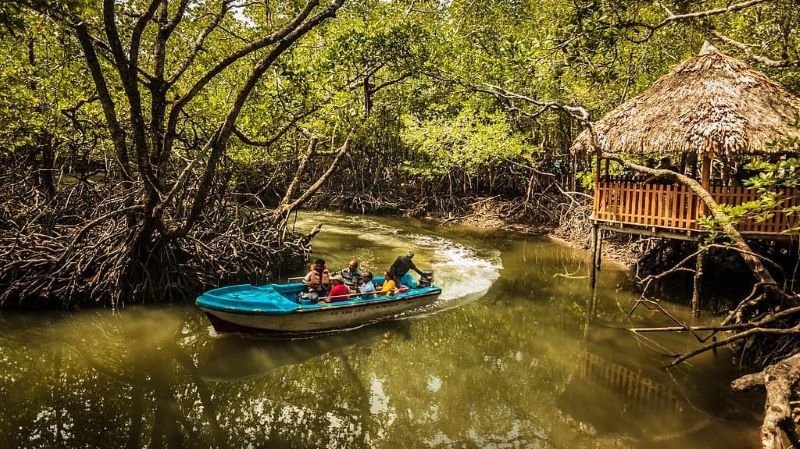Everything You Need to Know About Travel Insurance: Traveling is an exciting experience, but it can also be stressful. From packing to booking hotels, flights, and activities, there’s a lot to keep track of. One thing that should not be overlooked is travel insurance. Travel insurance can provide peace of mind and financial protection in case of unforeseen events. In this article, we will cover everything you need to know about travel insurance.
Everything You Need to Know About Travel Insurance
Table of Contents
- What is travel insurance?
- Types of travel insurance
- Coverage offered by travel insurance
- Exclusions and limitations of travel insurance
- Factors to consider when purchasing travel insurance
- How to purchase travel insurance
- Common misconceptions about travel insurance
- Tips for making a travel insurance claim
- Alternatives to travel insurance
- Conclusion
- FAQ
1. What is travel insurance?
Travel insurance is a type of insurance that provides coverage for unexpected events that may occur during a trip. It can include coverage for medical expenses, trip cancellations, lost or stolen baggage, and more. Travel insurance is typically purchased before a trip and is designed to protect the traveler financially.
2. Types of travel insurance
There are several types of travel insurance policies available, each with different coverage options. Some of the most common types of travel insurance include:
a. Trip cancellation insurance
This type of insurance provides coverage if you need to cancel your trip due to unforeseen circumstances. It may cover the cost of non-refundable travel expenses such as flights, hotels, and tours.
b. Medical insurance
Medical insurance provides coverage for medical expenses incurred during a trip, including hospitalization, emergency medical treatment, and evacuation.
c. Baggage insurance
Baggage insurance provides coverage for lost or stolen baggage during a trip.
d. Evacuation insurance
Evacuation insurance provides coverage for emergency medical evacuation in case of a serious injury or illness while traveling.
e. Comprehensive travel insurance
Comprehensive travel insurance is a combination of trip cancellation, medical, baggage, and evacuation insurance. It provides the most extensive coverage and is typically more expensive than other types of travel insurance.
3. Coverage offered by travel insurance
The coverage offered by travel insurance varies depending on the type of policy and the insurance provider. Some common coverage options include:
a. Medical expenses
Travel insurance may cover medical expenses incurred during a trip, including hospitalization, emergency medical treatment, and medication.
b. Trip cancellation
Travel insurance may cover non-refundable travel expenses if you need to cancel your trip due to unforeseen circumstances such as illness or injury.
c. Trip interruption
Travel insurance may cover the cost of unexpected expenses if your trip is interrupted due to unforeseen circumstances such as a natural disaster.
d. Baggage loss or theft
Travel insurance may cover the cost of lost or stolen baggage during a trip.
e. Emergency evacuation
Travel insurance may cover the cost of emergency medical evacuation in case of a serious injury or illness while traveling.
4. Exclusions and limitations of travel insurance
While travel insurance can provide valuable coverage, there are often exclusions and limitations to coverage. Some common exclusions and limitations include:
a. Pre-existing conditions
Most travel insurance policies do not cover pre-existing medical conditions.
b. High-risk activities
Travel insurance may not cover injuries incurred during high-risk activities such as bungee jumping or skydiving.
c. Alcohol or drug-related incidents
Travel insurance may not cover injuries or accidents that occur while under the influence of drugs or alcohol.
d. War or terrorism
Travel insurance may not cover injuries or accidents that occur during acts of war or terrorism.
5. Factors to consider when purchasing travel insurance
When purchasing travel insurance, it’s important to consider several factors to ensure you get the coverage you need. Some factors to consider include:
a. Trip duration
The length of your trip can impact the type of travel insurance you need. If you’re taking a short trip, you may only need basic coverage, while longer trips may require more comprehensive coverage.
b. Destination
Your travel destination can also impact the type of coverage you need. Some destinations may have higher rates of crime, natural disasters, or health risks, which may require more extensive coverage.
c. Activities
If you plan to participate in high-risk activities such as adventure sports, it’s important to ensure your travel insurance policy covers these activities.
d. Medical history
If you have pre-existing medical conditions, it’s important to ensure your travel insurance policy covers these conditions.
6. How to purchase travel insurance
Travel insurance can be purchased through insurance providers, travel agencies, or online brokers. It’s important to shop around and compare policies to ensure you get the coverage you need at a reasonable price.
7. Common misconceptions about travel insurance
There are several common misconceptions about travel insurance that can lead travelers to forego purchasing it. Some common misconceptions include:
a. It’s too expensive
While travel insurance can be expensive, the cost of medical treatment or trip cancellations can be much higher.
b. It’s not necessary
While it’s true that not everyone needs travel insurance, it can provide valuable financial protection in case of unforeseen events.
c. It covers everything
Travel insurance policies vary in coverage, and it’s important to read the policy carefully to understand what is and isn’t covered.
8. Tips for making a travel insurance claim
If you need to make a travel insurance claim, there are several tips to keep in mind to ensure the process goes smoothly:
a. Document everything
Keep copies of all receipts, medical bills, and other documentation related to your claim.
b. File the claim as soon as possible
The sooner you file your claim, the sooner you can receive reimbursement.
c. Follow up
If you haven’t heard back from the insurance provider within a reasonable amount of time, follow up to ensure your claim is being processed.
9. Alternatives to travel insurance
While travel insurance can provide valuable coverage, there are alternatives available, including:
a. Credit card benefits
Some credit cards offer travel benefits such as trip cancellation or lost baggage coverage.
b. Health insurance
If you have comprehensive health insurance, it may provide coverage for medical expenses incurred during a trip.
c. Homeowners Insurance
If you have homeowners insurance, it may provide coverage for lost or stolen personal belongings during a trip.
10. Conclusion
Everything You Need to Know About Travel Insurance: Travel insurance can provide valuable financial protection in case of unforeseen events during a trip. It’s important to consider the type of coverage you need, as well as any exclusions or limitations to coverage when purchasing travel insurance. By following the tips outlined in this article, you can ensure you get the coverage you need and have peace of mind while traveling.
Similar Articles
- Schengen: What you need to know about insurance
- How to Stay Safe While Traveling Solo
- Traveling from Santa Barbara to Los Angeles
11. FAQ
- Do I need travel insurance if I have health insurance?
While health insurance may provide some coverage for medical expenses incurred during a trip, it may not cover all expenses, such as emergency medical evacuation.
- What is the best type of travel insurance to purchase?
The best type of travel insurance to purchase depends on your individual needs and the type of trip you’re taking.
- Can I purchase travel insurance after booking my trip?
Yes, travel insurance can be purchased up until the day before your trip begins.
- Does travel insurance cover trip cancellations due to COVID-19?
It depends on the specific policy and the circumstances of the cancellation. Some policies may provide coverage for cancellations due to COVID-19, while others may not.
- What should I do if I need to make a travel insurance claim?
If you need to make a travel insurance claim, gather all necessary documentation and file the claim as soon as possible. Follow up with the insurance provider if you haven’t heard back within a reasonable amount of time.
- Can I purchase travel insurance for international travel?
Yes, travel insurance is available for both domestic and international travel.
- What is a pre-existing medical condition?
A pre-existing medical condition is any medical condition for which you have received treatment or medication prior to purchasing a travel insurance policy.
- Does travel insurance cover lost or stolen personal belongings?
Some travel insurance policies may provide coverage for lost or stolen personal belongings, but it’s important to read the policy carefully to understand what is and isn’t covered.
Everything You Need to Know About Travel Insurance









